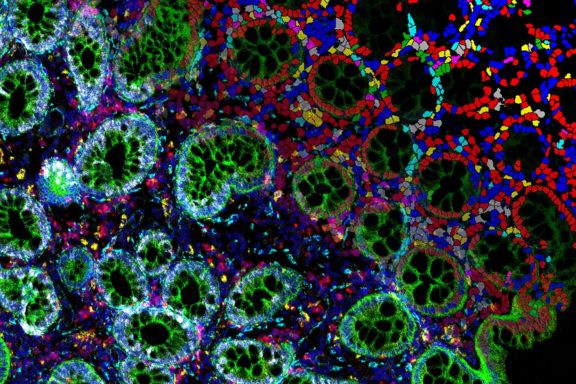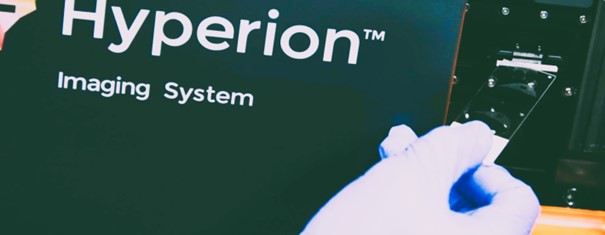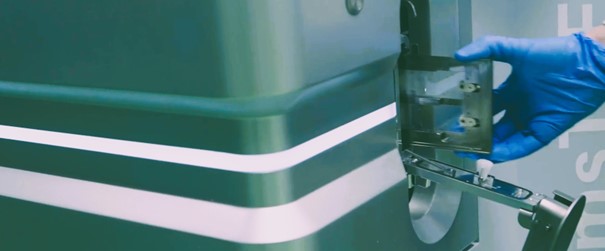
Spatial omics has taken off in recent years, helping us understand intercellular relationships by mapping the organization of cells within tissues.
The goal of the Multi-scale Spatial Omics Platform is to make spatial omics approaches more accessible to our UMCU researchers and beyond. To achieve this, we offer tailored support and guidance to enhance your research with our spatial technologies and strive to nurture a spatial community within UMCU. Beyond our UMCU researchers, we also offer consulting and services to external users.
Kristof Van Avondt | Team Lead Multi-scale Spatial Omics Platform
With spatial techniques, we collect detailed cellular information and study the positional context of cells within tissues. Leveraging these technologies for your research allows you to better understand biological processes, such as cell-to-cell interactions between normal and diseased tissue. Within our team, we share the ambition to unravel disease drivers through in-depth studies of intercellular relationships within patient tissues.
The Multi-scale Spatial Omics Platform is set up to catalyze the application of spatial technologies by merging expertise and providing support for spatial data collection and analysis. UMCU hosts several state-of-the-art spatial methodologies (including transcriptomics, proteomics and metabolomics), and we offer advice and solutions tailored to your scientific questions and research goals.
Working closely with UMCU core facilities, we strengthen and advance the acquisition and analysis of high-spatial-resolution data. Several spatial technologies are already provided in service, including
These technologies enable us to study the expression and localization of mRNA, proteins, lipids and metabolites within their spatial tissue context. Unlocking tissue complexity with spatial omics provides greater insight into disease-promoting pathways and ultimately into new strategies to prevent or treat disease.


